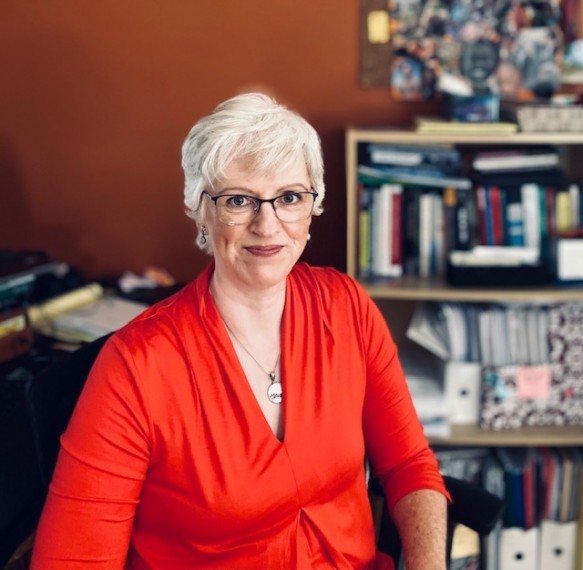
What we choose to learn and who we choose to learn from shapes how we think and the futures we build. From my perspective as a grad student working under pandemic conditions, certain types of learning opportunities vanished, but there was more choice in online formal and informal learning than ever before. In fact, the abundance of webinars, online courses and conferences was overwhelming at times. So how to tune out the noise and tune in to real learning? For me real learning is when my ideas about what’s possible expand or shift.
I’m talking about the type of learning that shows me what’s in my blind spot. As a settler grad student, my research in comparative settler colonial studies and Indigenous politics has educated me about the massive collective blind spot among Canadians that is not accidental and acts to keep many people ignorant of uncomfortable truths. This was painfully exposed by the recent “discovery” of the remains of hundreds of children in unmarked burial sites on the grounds of a British Columbia Indian Residential Schools.
And yet this truth and many more truths have long been known by some but unless many more Canadians become willing listeners, witnesses, and learners such truths remain largely unacknowledged and unmarked, just like the children’s graves. That’s why the need for widespread education and re-education about residential schools, Indigenous rights and title, cultural competency, and reconciliation was an essential part of the Calls for Action issued by the Truth and Reconciliation Commission in 2015.
Blind spots lead to poor decisions. When we don’t know what we don’t know there’s no choice but to continue stumbling forward in ignorance. But Canadians have been shown the nature and immensity of their blind spot, so we have a choice. For those who don’t have direct access to the truth through experience, there is the possibility of actively choosing to become learners, listeners, and witnesses.
This was a choice settler actor/writer Dan Levy made last year when he enrolled in the University of Alberta’s free Indigenous Canada Massive Open Online Course (MOOC) [1], and asked his millions of social media followers to join him. The course leaders, Dr. Tracy Bear and Dr. Paul Gareau also worked with Mr. Levy to host weekly Q&A sessions on the course content still available on YouTube. This high-quality free learning material is one example of a great place to start taking a look into that blind spot.
While I definitely don’t have millions of social media followers, I also made choices last year to become more of an active learner. I felt an urgent need to continue filling my own learning gaps and check into my blind spot. With my PhD coursework successfully completed, I jumped at the opportunity to shape my own learning by inviting Indigenous scholars to present their work through a series of webinars with support from my department (Political Science) and from the University’s Human Rights and Diversity Office. The pandemic-induced normalcy of online rather than in-person talks made it possible to reasonably invite scholars from beyond local institutions who could share insights and perspectives normally not so easily accessible. What resulted was a series of three webinars with eight leading Indigenous scholars from many different treaty and unceded lands. My own perspectives on what’s important and what’s possible significantly expanded and the blind spot that many settler Canadians are only now starting to acknowledge was opened up for truthful examination.
The Indigenous Scholars Lecture Series 2020-21 [2] was recorded and is available through the University of Guelph’s College of Social and Applied Human Sciences.
By Joanne Garcia-Moores, June 2021